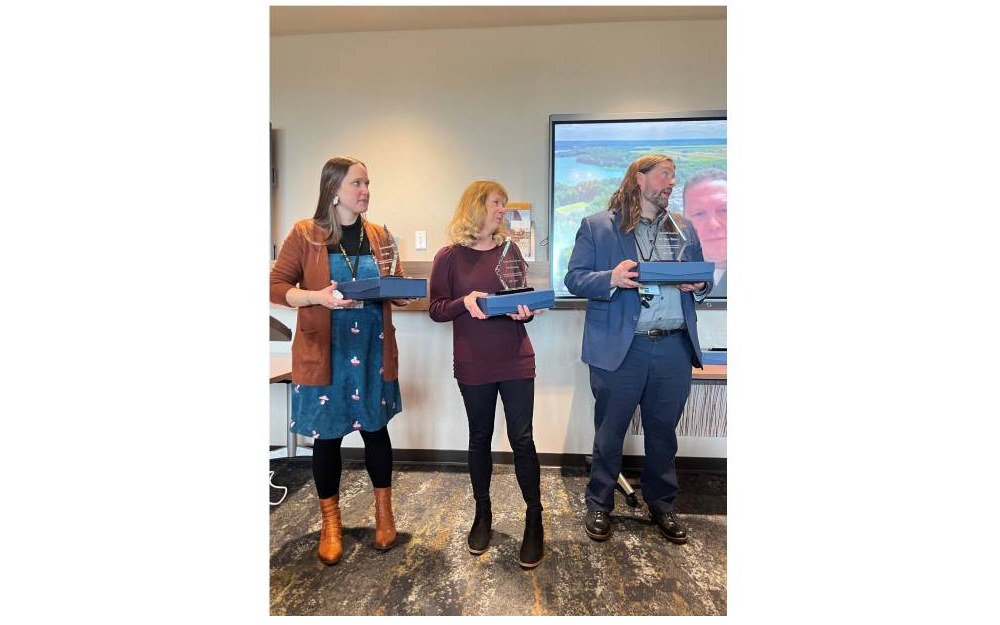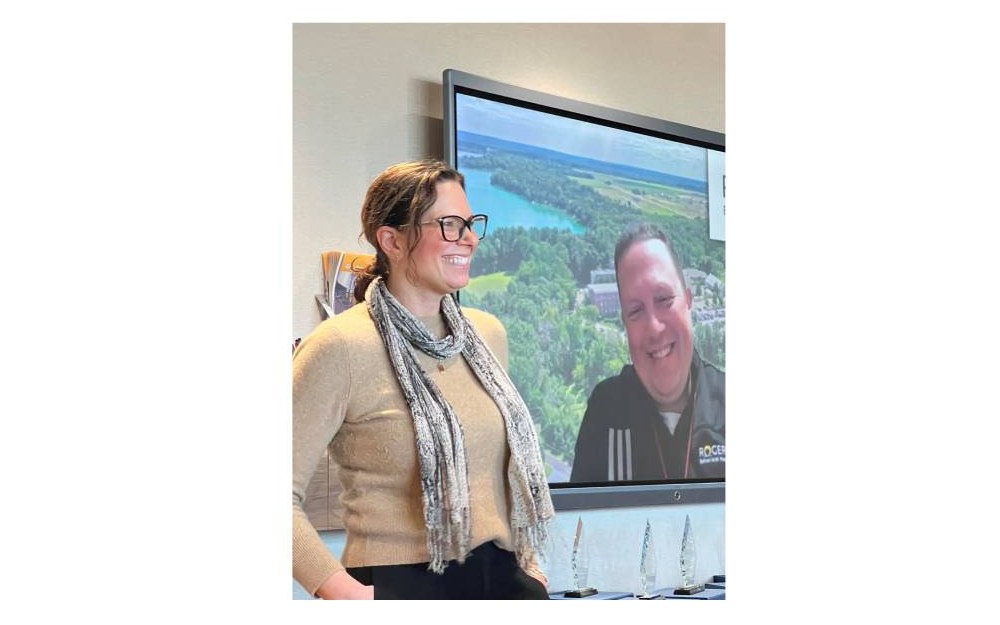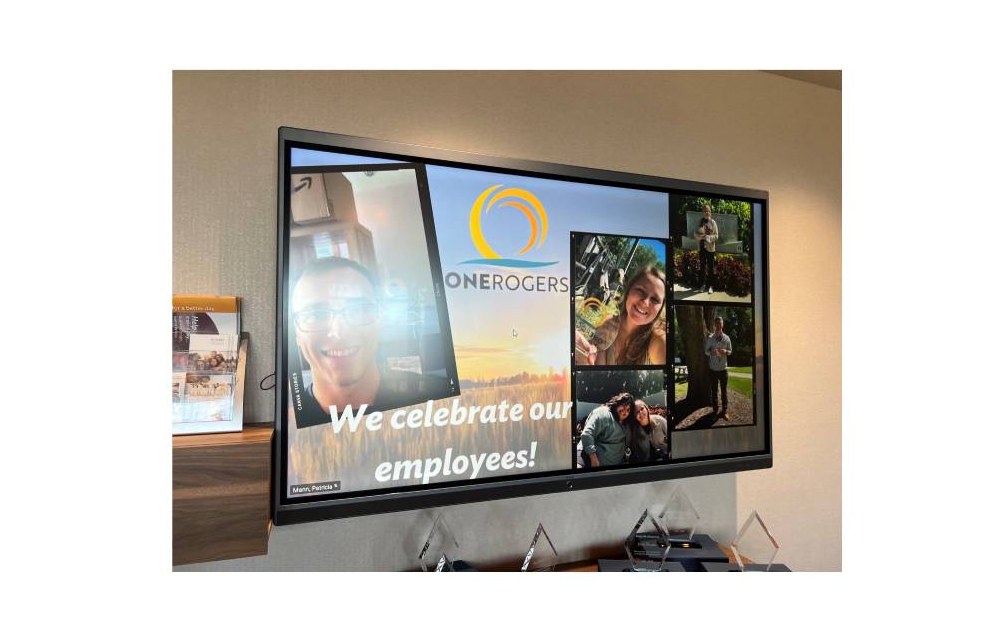
Rogers celebrates 10th anniversary of unique Focus Depression Recovery program
03/15/24 02:30:pmOn a date as unique as the program itself, this Leap Day Rogers celebrated 10 years of Focus Depression Recovery, its dedicated team members, and the hundreds of people the program has helped live more fulfilling lives.
At the Ladish Center on Thursday, February 29, Rogers held a 10th anniversary celebration for the program housed in the Charles E. Kubly Adult Residential Center. Thanks to a generous gift from Billie Kubly and the late Dr. Michael Kubly, the building named in loving memory of their son Charlie provides a home-like setting for adults in residential treatment for depression or other mood disorders.
Lacie Timm, an experiential art therapist with the program for all of its 10 years, spoke about the program’s significance at the celebration.
“We’re seeing people from surgeons to officers to veterans to stay-at-home moms to NBA players to millionaires and CEOS and literally anybody and everybody,” Timm said. “It shows that mood disorders and personality pathology don’t discriminate.”
Since its start in 2014, the program has provided more than 2,400 stays for patients, totaling nearly 85,000 days of treatment. From admission to discharge, the average score of patients’ self-reported depression symptoms was nearly cut in half, and the average quality of life score increased by an average of more than 20 points on a 100-point scale.
“It was the perfect program at the perfect time,” says Dr. Tyler Rickers, DO, medical director of Focus Depression Recovery adult residential care, who has been with the program since nearly its beginning. “Over the last decade, we’ve taken patients with some of the most challenging cases of depression in the country and the world, and we’ve tried to help them and provide them with something different and effective.”
Rickers says the program is successful and stands out largely because of its focus on behavioral changes through different types of therapy.
“We offer something unique, and that’s why we’re still here, despite the patients with challenging cases who come to us. That’s how we made our niche, and then we began to get overwhelmed with the amount of folks interested in the program,” he says. “We had a huge wait list. We had to expand and expand.”
The Focus Depression Recovery program was originally designed for young adults struggling to transition into adulthood, but it has since expanded to accept adults of all ages who have trouble meeting work or family demands because of their significant mental health challenges. Dr. Jerry Halverson, MD, and Dr. Rachel Leonard, PhD, helped to develop the program before moving onto medical and clinical system-level roles. Both spoke at Thursday’s event.
“The program is worth celebrating because of all of the lives we have saved,” Timm says, adding that the program accepts patients with severe, complex symptoms and behaviors that other programs may consider too high-risk.
“It’s high-risk, high reward. There’s something really beautiful about the change we see in people,” Timm says. “When people come into our program, they are the lowest they’ve been in their lives. People didn’t want to be alive before they came to us. We’re able to help them see that spark for life again. That’s what makes the program at Kubly stand out from the crowd.”
As an art therapist, Timm’s enthusiasm and passion for the program has made in impact from its very beginning. Thank-you notes on a wall in her officer serve as reminders of the difference she and her fellow team members make.
“I get to be part of the patient’s healing experience and see their wheels start to turn again, particularly through creativity, problem solving, and challenging their black and white thinking,” Timm says. “I just had two people leave my group telling me that art therapy was the key part of their treatment here. I can’t tell you how often I hear that. It’s amazing. It fills my cup, and it reiterates that this is the right place for me.”
Many former patients have expressed the Kubly Center was just the right place for them, too.
“I honestly do not know what I would have done without Focus Depression Recovery,” one former program patient wrote in a letter to Rogers Behavioral Health Foundation, adding that before they came to Rogers, they believed happiness was a myth. “While life is not perfect, I can honestly say that I am happy. Rogers and my Patient Care Grant saved my life and truly gave me a life worth living.”
Another former patient wrote that before entering the program, they spent several years in a “constant state of crisis,” trying multiple medications and losing hope.
“I viewed Rogers as my last chance to live. From the moment I met my treatment team and the rest of the staff, I knew that this was going to be what saved me. They all had so much hope for me when I wasn’t capable of having hope for myself,” the patient wrote, adding that that Rogers gave them their life back. “I have returned to school to pursue my lifelong dream of becoming a therapist, been able to maintain a job I absolutely love, gotten involved with a BPD (Borderline Personality Disorder) advocacy organization that means a lot to me, and I got a puppy who I have been training myself to become my service dog! Without Rogers and all their incredibly dedicated staff, I would not be here today.”
Rickers says he hopes the program continues to expand treatment options, including experiential therapy, and thanks Rogers team members for their dedication that got them to this 10-year celebration.
“Without the amazing staff that we have, none of this would have happened,” he says.








